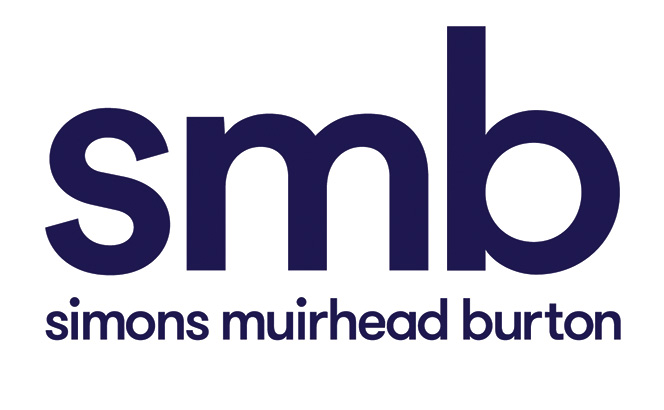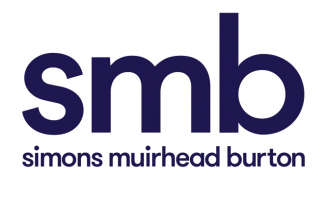From its civil liberties roots, Simons Muirhead Burton (SMB) has grown over the last 50 years into a full-service law firm based in London’s West End. The firm is renowned for its leadership in many areas, with our corporate M&A team making a significant impact when it comes to advising sellers/buyers across diverse sectors ranging from media and technology, to creative agencies, the hospitality, manufacturing, retail and professional services industries.
We are unique in that we act for both entrepreneurs and start-ups, mature businesses seeking funding, growth and sale, and for family offices, private equity investors and multinational companies.
At the heart of SMB’s M&A practice is an exceptional team of lawyers, adept at guiding clients through highly complex mergers, acquisitions and investment transactions. Among them, we are proud to showcase exceptional female talent.
Natalie Wright jointly heads the corporate department and is a formidable force in the M&A world. She is ranked in The Legal 500 2023 as a leading individual for her M&A work and her dedication and prowess have garnered praise from clients, with one describing her as ‘brilliant to work with… an exceptionally clear communicator and a formidable tactical and lateral thinker’.
Another prominent leader is Razwana Akram, partner, and co-head of the film and TV practice at SMB. Also ranked in The Legal 500 2023 as a leading individual with an established reputation, Razwana is renowned for her rare ability to combine an outstanding depth of knowledge of the legal intricacies of film finance with a practical and commercial view on investment requirements.
Adding to the strength of our female leadership is legal director Jenny Constable, who brings over 20 years of experience to the corporate team.
Compelling Cases in Our Portfolio:
SMB’s M&A portfolio of clients, both UK and internationally-based, highlight the scope of our experience and skill and quality of those clients that we represent.
Recent deals include:
- Advising the founders of Gate One and then of Inviqa, specialist digital/creative agencies, in their sales to Havas, one of the world’s largest global communications groups.
- Advising the founders of Rahko, a leading quantum machine learning company, on their sale to Odyssey Therapeutics, Inc, a US biotechnology company launched in 2021 with US$218m of funding.
- Advising Banijay Kids & Family in the acquisition of Kindle Entertainment, the multi-award winning, female-led, UK drama specialist behind Little Darlings and The A List.
- Advising leading UK-based international talent agency, 42 M&P, on the investment by US-based international motion picture and television studio, Lionsgate.
Q&A with Natalie Wright
Why do you think that M&A is a male-dominated field?
Perception, or more accurately, misconception, plays an important part in the answer to this.
Although 52% of newly qualified lawyers in private practice are women, only 20-25% are in M&A, reflecting the M&A industry as a whole. This can be erroneously dismissed as a pipeline issue; meaning we just need to wait for the 52% to ascend to partnership. However that 52% will not translate into 52% of female partners. While the landscape is steadily changing, the increase in female senior roles will only achieve gender parity in around 60 years. Progress will only be accelerated if the need for proactive measures to address the barriers is recognised and the pipeline issue is recognised as a pipeline myth.
Back in 2018, SMB invited the pioneering (and somewhat controversial) novelist, Jeanette Winterson, to talk at our Women in Business event on the barriers that women face. Afterwards, I was taken aback that the millennials in our M&A team were unenthused; ‘that’s not relatable to me’, they observed, ‘my opportunities are no different to my male colleagues’. Even I started to wonder if the pipeline issue was true.
In your opinion, what are the specific barriers which contribute to the underrepresentation of senior women in M&A?
Self-doubt is a barrier. Since Jeanette’s talk, it is notable that junior female lawyers are more vocal when it comes to remuneration at a level they deserve. At five years’+ experience however, a majority of those will hit the period of self-doubt exacerbated by the fact that at senior levels, men are more likely to be promoted on potential, but women’s promotions are more performance-driven. Self-doubt is not exclusively female but if you throw in the timing collision of partnership vs having a family, the pressures become too much.
Self-doubt in women can come from a tendency to avoid openly claiming credit for their contribution and down-playing their achievements. Despite advances that have been made, if a woman appears as self-promoting, there exists a cultural bias in how that is interpreted by the recipient leading to a misconception that she is ‘forthright’, ‘pushy’ or even ‘aggressive’. This can result in women opting to deselect themselves from management roles unless they can see they are doing the job already. Businesses fail to recognise these characteristics. Even in the recruitment of law firm partners, a male candidate is much more likely to overplay the value of their business compared to a female. I know because I brought in three times the value that I had promised in my first year at SMB. The real shift change comes from businesses being more aware of the female understatement and adapt their processes to deal with it.
Women inadvertently exacerbate the self-doubt period by not recognising their own bias in themselves. Despite working hard and achieving good results, most will still need validation from their colleagues before they will consider putting themselves forward for partnership or other senior roles, and I was no exception. My period of self-doubt lasted three years and only when I moved to SMB did I finally bite the bullet and become a partner.
What steps can law firms take to encourage and support women, both for initial career progression and achieving partnership in M&A?
Acknowledge the underrepresentation of women. Increase awareness within their business of both the pipeline myth and the period of self-doubt, both of which need combating.
Objective promotion criteria is critical as well as active career management as this can counteract the tendency to down-play contribution. Although perhaps obvious, discussions should routinely take place on promotional opportunities and the steps required to get there. A lack of mentoring is also often a missed opportunity. Senior people in the business should be banging the drum for those with potential and ensure they are being credited appropriately – if you are not getting credit for what you do, someone is!
Promote the great things about becoming a partner in a law firm. It’s rare to achieve success as a lawyer without hard work but partnership makes your job easier, not harder. It is all too often promoted as a cliff edge where you will suddenly have no work to do because you have to source everything yourself. Becoming a partner gives you a great platform to develop business. You also get more flexibility in how you work which means more control over personal/work life.
In the last few years, what would you say are the most significant changes for women in M&A, both at SMB and in the field generally?
Women leaders are in a privileged position. It is a platform to influence and bring about change; the seat at the table should not be wasted, even if it leads to difficult conversations. SMB has increased the number of women in senior management by over 40%, but in the M&A industry, the pace of change is too slow.
SMB, as a forward-thinking firm, did not need a pandemic to see the advantages of adopting hybrid working practices. However, Covid accelerated the change and has helped dispel the cultural thinking that men don’t need flexible working around family commitments. An acceptance by employers of shared family commitments should contribute to women not giving up with the concept of partnership when these pressures collide.
Who have been your own personal mentors in your career, and what did they do to encourage your career?
Too many to mention but in terms of achieving partnership, Steve Sylvester (sports psychologist, client and friend), who observed in our many ‘should I/shouldn’t I’ conversations – ‘run that by me again, you’re good at what you do, you run significant client relationships, you love your job… conclusion is to give up and go in-house?’ This was a significant turning point for me.
Simon Goldberg at SMB for telling me, after only two years at partner level, that I was on track for equity partnership. For me it was out of the blue and unachievable. But it changed the way I thought about myself and that very important seed was sown. I was there within two years.
I have listened to advice and learned from experience. I have found a way of banging my own drum. It’s probably more like a shake of the tambourine with the occasional trombone blast in someone’s ear, but it’s the authentic me and I’m comfortable with it.
For more information, please contact:

Natalie Wright
E: natalie.wright@smb.london
T: +44 20 3206 2799
Peter Weiss
E: peter.weiss@smb.london
T: +44 20 3206 2725
Simons Muirhead Burton
87-91 Newman Street
London W1T 3EY
Tel: +44 (0)20 3206 2700














